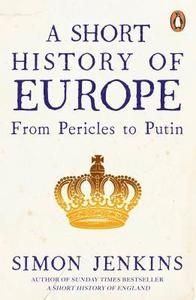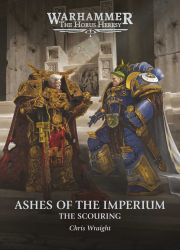We Germans
-
Код:9781529343533
-
Тегло:0.208 кг
That letter is this book. In it, he relates the experiences of an unlikely few days on the Eastern Front - at a moment when he knows not only that Germany is going to lose the war, but that it deserves to. He writes about his everyday experience amid horror, confusion and great bravery, and he asks himself what responsibility he bears for the circumstances he found himself in. As he tries to find an answer he can live with, we hear from his grandson what kind of man he became in the seventy years after the war.
We Germans is a fundamentally human novel that grapples with the most profound of questions about guilt, shame and responsibility - questions that remain as live today as they have always been.
Условия за ползване
Условията за ползване накратко
Можете да намерите книга, която Ви интересува като разглеждате категориите или като използвате търсачката.
Регистрация в сайта не е задължителна.
Цената на доставката до България е фиксирана и не зависи от броя и теглото на поръчаното - 3.00 евро (5.87 лв.) до адрес и 2.50 евро (4.89 лв) до офис на Еконт.
Поръчки над 21.47 евро (42 лв.) ползват една безплатна доставка.
Приемаме плащане с наложен платеж - плаща се на куриера при получаване на книгите.
Приемаме плащане по банков път.
Обичаен срок на доставка - за налични стоки в магазина 2-3 работни дни.
Поръчките, направени преди 15 часа в работен ден, изпращаме същия ден.
Поръчките , направени след 15 часа в работен ден, изпращаме на следващия работен ден.
Поръчките, направени в официалните почивни дни, изпращаме на първия работен ден.
-за индивидуални поръчки на английски език между 35 и 90 дни, на немски език около 25-55 дни.
Търсене
Търсенето на книга се осъществява в полето за търсене в горния десен ъгъл на екрана. Резултатът може да е намерен в заглавието, автора, името на издателството и/или описанието на книгата.
Вашата книга можете да намерите и като разглеждате съдържанието на отделните категории в магазина.
Поръчка
Всеки продукт, който одобрите за покупка можете да прибавите в списък с избрани книги с натискане на бутона "Добави в количката".
Когато решите, че сте приключили с разглеждането и сте направили своя избор можете да видите резултата в полето "Мини количка" в десния горен ъгъл на екрана и да натиснете бутона "Виж и купи" за да видите подробности по поръчката, която правите.
На този етап можете да махнете някое от избраните заглавия чрез натискане на кръстчето срещу всяко от тях, да промените поръчваното количество или да се върнете към разглеждането на магазина с натискане върху надписа "Продължи с пазаруването".
Когато списъкът със заглавията и бройките, които искате да поръчате е готов можете да продължите с натискане на бутона "Поръчка".
Отваря се екран за незадължителна регистрация - можете да се регистрирате, да продължите с изписване на електронна поща и парола, ако вече сте регистрирани или да продължите поръчката като гост. В последния случай указаната електронна поща се използва само за осъществяване на кореспонденция с Вас относно направената поръчка, но губите бъдещата възможност да преглеждате старите си поръчки и да си спестите досадното попълване на адрес, телефон и други данни при всяка следваща поръчка.
В следващия екран се попълват дани за клиента - адрес, телефон и данни за фактура, ако искате да бъде издадена такава за покупката. Възможно е адресът за кореспонденция и този за доставка да се различават - различните данни се попълват на указаните места.
С бутон "Следваща стъпка" се преминава в екран, където се уточнават начините на плащане и доставка.
В монента предлагаме плащане само с наложен платеж.
С бутон "Следваща стъпка" отивате на екран Ревю за да прегледате отново данните за поръчката - какво сте поръчали, на какъв адрес ще се свързваме с Вас и на какъв ще доставим пратката, колко Ви струват книгите и колко доставката. Ако всичко е наред натиснете бутон "Финализирай поръчката" и така поръчката ще бъде направена.
Ще получите писмо на посочената от електронна поща с данни за поръчката. Ще получавате електронна поща или телефонно обаждане, ако има детайли за уточняване в процеса на изпълнение на поръчката.
Доставка
Доставката се осъществява от куриер на Еконт или служител на Букохолик. Заплащането е с наложен платеж в брой на куриера.
Сумата, която заплащате е равна на цената на заявените стоки заедно с разходите за доставка. Тази сума представлява авансово плащане по смисъла на чл. 53, ал. 1 от Закона за защита на потребителите, за извършването на което давате съгласие с натискане на бутона "Финализирай поръчката".
Връщане
Имате право да върнете в срок от 14 дни, считано от деня на покупката, закупената книга при спазване на следните условия:
1. Книгата да бъде с ненарушена цялост, без наранявания, одрасквания или външни повреди;
2. Да не са правени опити за късане на страници;
3. Да не са налице повреди, причинени от клиента поради невнимателно транспортиране или неправилна употреба;
4. Там, където в поръчката са включени консумативи или аксесоари, те да бъдат с ненарушена цялост на оригиналните им опаковки;
5. Транспортните разходи за връщането на книгата са за сметка на клиента.


















